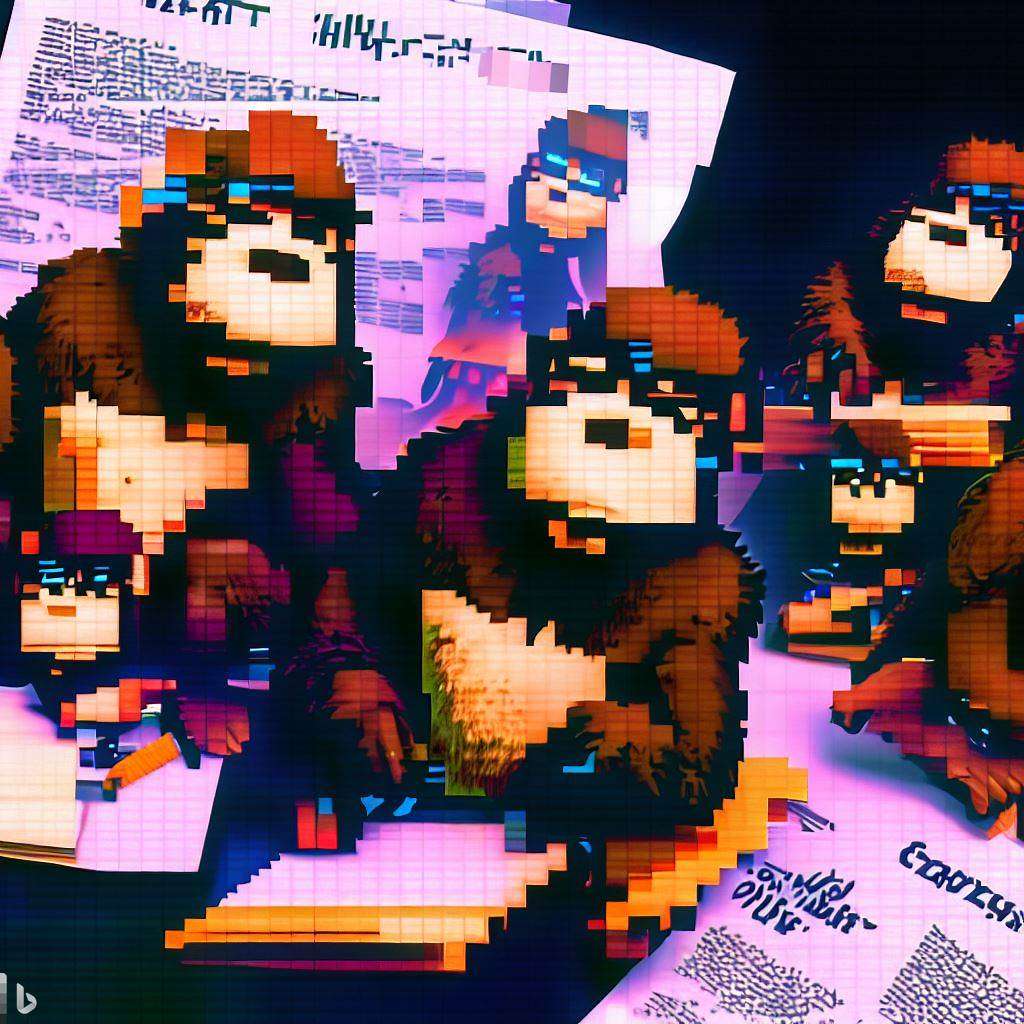
In a recent turn of events, the renowned auction house Sotheby’s finds itself embroiled in an ongoing legal battle involving the creators of the Bored Ape Yacht Club (BAYC), Yuga Labs. The lawsuit, a class-action filed by BAYC investors, alleges deceptive practices in the promotion of a nonfungible token (NFT) collection back in 2021. Despite the accusations, Sotheby’s vehemently denies any wrongdoing and is committed to defending itself against the claims.
The Bored Ape Yacht Club, a trailblazing digital art and NFT project, captured substantial attention for its innovative approach to NFTs. The project offered collectors the opportunity to own unique pixelated ape-themed artworks, a concept that swiftly gained traction within the burgeoning NFT market. However, the lawsuit brought forth by investors contends that the marketing of the NFT collection was misleading, resulting in financial losses for the participants.
Responding to its involvement in the legal proceedings, Sotheby’s issued a firm statement to CNN, refuting the allegations made against the auction house. A representative from Sotheby’s emphatically stated, “We categorically deny any wrongdoing and stand firm in our commitment to transparency and ethical business practices.” The auction house appears resolute in its determination to counter the claims leveled against it.
The class-action lawsuit alleges that BAYC investors suffered financial harm due to deceptive practices employed during the promotion of the NFT collection. The investors contend that the information provided to them was misleading, causing them to make decisions based on inaccurate representations. The lawsuit casts a shadow over the once-celebrated Bored Ape Yacht Club, known for its innovative NFT offerings.
The Bored Ape Yacht Club’s distinctive approach to NFTs, featuring pixelated ape-themed artworks, captured the imagination of the digital art community. The project allowed collectors to own these unique digital assets, which were often seen as a blend of art and technology. Despite its initial success, the class-action lawsuit highlights concerns about the transparency and accuracy of information provided during the NFT collection’s promotion.
Sotheby’s, a prominent player in the world of high-end auctions, has been drawn into the legal proceedings due to its involvement in facilitating the sale of the Bored Ape Yacht Club NFTs. The auction house played a role in bringing the NFT collection to market, thereby placing it at the center of the allegations. Sotheby’s, however, asserts that its actions were conducted in line with its commitment to professionalism and ethical standards.
As the legal battle unfolds, industry observers are closely watching the implications this case could have for the NFT market at large. NFTs, which have surged in popularity in recent years, rely heavily on trust and transparency. Any perceived breach of these principles could potentially shake investor confidence and impact the broader NFT ecosystem.
Legal experts suggest that the outcome of this case could set a precedent for accountability within the NFT space. The lawsuit underscores the importance of accurate and transparent marketing practices, especially when dealing with a novel and evolving market like NFTs. It remains to be seen how the court’s decision will influence the practices of NFT creators, platforms, and auction houses in the future.
In conclusion, the allegations brought against Sotheby’s in the Bored Ape Yacht Club NFT lawsuit have cast a shadow over the celebrated auction house’s reputation. The class-action lawsuit filed by BAYC investors claims deceptive practices in the marketing of the 2021 NFT collection, causing financial harm to participants. While Sotheby’s staunchly denies any wrongdoing, the case underscores the need for transparency and accuracy in the promotion of NFTs. As legal proceedings unfold, the broader NFT market watches closely, as the outcome could potentially shape the future of the industry’s practices and standards.

Get the latest Crypto & Blockchain News in your inbox.